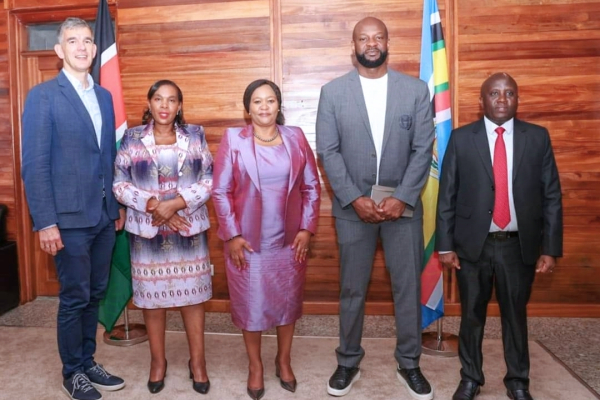With Africa’s digital economy rapidly expanding, partnerships like this play a crucial role in bridging the digital skills gap. By integrating AI into data-driven decision-making, such collaborations can produce solutions uniquely suited to local challenges.
Kenya has announced a new collaboration with Google to bolster the nation's digital infrastructure and expand digital skill development for citizens. In a meeting held yesterday October 29 with Google’s President for Europe, Middle East, and Africa, Matt Brittin, Kenya’s Cabinet Secretary for Information, Communication, and the Digital Economy, Dr. Margaret Ndung'u, and Cabinet Secretary for Tourism and Wildlife, Hon. Rebecca Miano, discussed the ambitious partnership, which will center on leveraging artificial intelligence (AI) and digital tools to support key sectors.
Key objectives of the partnership include strengthening Kenya's cybersecurity and empowering locals with digital skills. Google’s technology will support Kenya’s tourism industry by using AI-powered data insights to enhance conservation efforts, attract international visitors, and improve digital experiences for tourists.
This collaboration supports Kenya’s Vision 2030 goals of creating a secure and inclusive digital landscape, unlocking innovation and economic growth opportunities. It also aligns with Kenya's Digital Economy Blueprint, which aims to ensure universal digital access and engagement, positioning the country as a leader in digital transformation within Africa. Furthermore, the United Nations Economic Commission for Africa (UNECA) projects in its Artificial Intelligence in Africa: Economic Development Potential and Challenges to Overcome 2024 report that the adoption of AI could add nearly $150 billion to the continent's GDP by 2030.
The initiative underlines Kenya’s commitment to a digitally-driven economy, setting a foundation for long-term growth and enhanced global connectivity.
Hikmatu Bilali



















